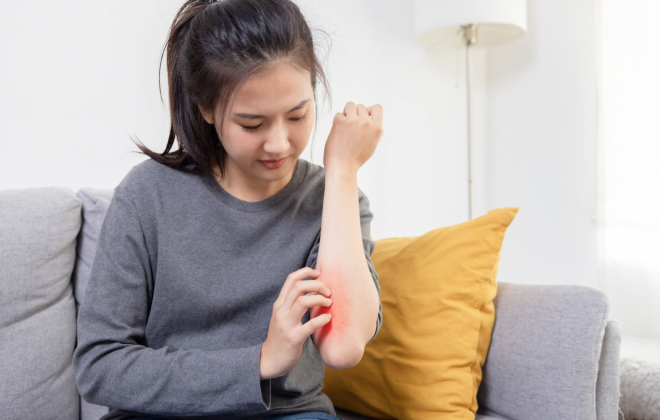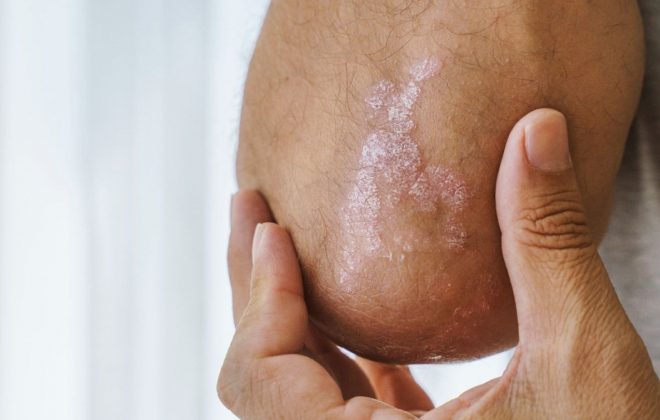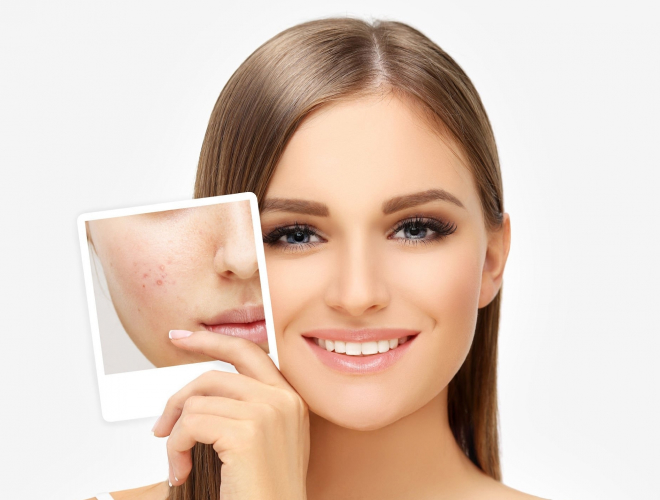


There’s hardly any of us who doesn’t suffer from skin conditions. While they range from minor to major, skin diseases can affect someone physically, emotionally, and psychologically. An understanding of a few common skin conditions is important for providing effective care and support.
Skin conditions such as acne, eczema, psoriasis, and dermatitis can cause severe discomfort through symptoms like itching, redness, inflammation, and lesions. Beyond the physical implications, living with these conditions often leads to reduced self-esteem due to changes in appearance caused by scarring or disfigurement. It can also lead to psychological distress such as anxiety or depression arising from concerns about body image or social interactions. Hence it is important for Dermatologists to keep in mind these psychological aspects along with a comprehensive knowledge of the causes, triggers, and treatments of each condition.
Now, let us delve into a few of the common skin conditions and endeavour to understand them in a better way.
Acne is the 8th most prevalent disease worldwide affecting almost 10% of the global population. It is most common among teens and is especially prevalent in boys.
Medically known as Acne Vulgaris, acne is caused by multiple factors and the interplay between hormonal imbalances, sebum production, bacteria colonisation, and inflammation.
Hormonal changes during puberty stimulate the production of androgen hormones such as testosterone, which leads to increased sebum production from sebaceous glands in the skin. Excessive sebum secretion results in clogged pores due to hyper keratinisation within the hair follicles. These clogged pores create an ideal environment for Propionibacterium acnes bacteria to thrive, promoting inflammation and redness characteristic of acne lesions.

Furthermore, external factors such as diet, stress levels, and certain medications can also trigger or exacerbate acne flare-ups. High glycaemic index foods and dairy products have been implicated in exacerbating acne symptoms due to their potential to elevate insulin levels and promote an inflammatory response.
Stress stimulates the release of cortisol hormones that can lead to increased oil production and inflammation within the skin.
Acne-triggering medications include corticosteroids, lithium-based drugs used in psychiatric conditions, and some anticonvulsants.
Acne can be of various types, each characterised by distinct symptoms.
Accurate identification of these various types is crucial for effective treatment as they require different approaches such as topical creams, antibiotics, or isotretinoin depending on their severity.
Effective treatments are crucial to alleviate the physical and emotional impact of acne. Over-the-counter options can provide significant relief, particularly in mild to moderate cases.
One such treatment is benzoyl peroxide, which effectively kills bacteria on the skin’s surface and helps unclog pores. Salicylic acid is another popular OTC option that exfoliates the skin and encourages cell turnover, preventing pore blockages.
Additionally, sulphur-based products work by drying out excess oil and reducing inflammation. Absorptive agents such as activated charcoal have gained popularity due to their ability to absorb toxins and impurities from the pores. Effective topical retinoids are also available over the counter, promoting skin cell turnover and unclogging pores at a deeper level.
Acne can be influenced by diet and lifestyle choices. Research suggests that a high-glycaemic diet, rich in refined sugars and processed carbohydrates, can worsen the symptoms of acne. These foods spike insulin levels which in turn can lead to inflammation and an increase in sebum production, thus clogging pores.
On the other hand, a balanced diet with plenty of fruits, vegetables, lean proteins, and healthy fats can help manage acne. Nutrients like vitamins A, C, E, zinc, and omega-3 fatty acids contribute to healthier skin by reducing inflammation and supporting cell turnover.
Additionally, exercise plays a crucial role in managing acne as physical activity helps regulate hormones and reduces stress levels. Moreover, proper skin care practices such as gently cleansing the face twice daily, and avoiding harsh chemicals or abrasive scrubs that damage the skin barrier are essential for individuals looking to effectively manage their acne.
With careful attention to dietary choices and adopting a healthy lifestyle including regular exercise and an appropriate skincare routine individuals can significantly improve their acne symptoms over time.
Eczema, also known as atopic dermatitis, is a common chronic skin condition that affects individuals of all age groups. It is characterised by inflamed, red, itchy, and dry patches of skin that can appear anywhere on the body. In recent years, the prevalence of eczema in the population has significantly increased worldwide.
According to various studies and surveys conducted globally, it is estimated that around 15-20% of children and 1-3% of adults suffer from eczema. The exact cause of eczema remains unknown; however, it is believed to be a combination of genetic and environmental factors.
Eczema can have a significant impact on an individual’s quality of life as it causes discomfort, disrupts sleep patterns, and can lead to secondary infections due to scratching.

Eczema can be categorised into different types based on their presentation and underlying causes.
Managing eczema flare-ups through proper skincare routines is crucial for individuals with this chronic skin condition. To effectively manage flare-ups, a consistent skincare routine tailored to the individual’s needs is essential.
This routine should include gentle cleansers free from fragrances and harsh chemicals, followed by moisturisers containing ceramides to restore and strengthen the skin barrier. It is advisable to avoid trigger factors such as hot water, certain fabrics, or harsh soaps that can exacerbate symptoms.
Additionally, regular moisturisation throughout the day and prompt treatment of any open areas with topical corticosteroids will help alleviate inflammation. In severe cases, consulting a Dermatologist who specialises in eczema management may be beneficial in order to develop a personalised skincare regimen encompassing avoidance strategies and targeted medications. By adhering to a proper skincare routine, individuals with eczema can mitigate flare-ups and improve their quality of life significantly.
Fortunately, there are various medications and therapies available to alleviate the symptoms and manage eczema effectively.
Topical corticosteroids remain the primary intervention for most patients, as they combat inflammation and relieve itching. However, they should be used cautiously in the long-term due to potential side effects.
Another commonly prescribed class of medications is topical calcineurin inhibitors, which inhibit the inflammatory response without causing thinning of the skin. For severe cases or when standard treatments fail to provide relief, oral corticosteroids or systemic immunosuppressants may be considered but require careful monitoring due to their systemic effects.
Additionally, several emerging therapies target specific components of the immune system involved in eczema pathogenesis, such as interleukin inhibitors or phosphodiesterase-4 inhibitors. Phototherapy involving targeted exposure to ultraviolet light can also be effective in managing eczema symptoms.
Treatment selection should be tailored to each patient’s needs and medical history under the guidance of a qualified healthcare professional specialising in dermatology.
Psoriasis is a chronic autoimmune disease that affects the skin, causing red, scaly patches on various parts of the body. Understanding its causes, symptoms, and prevalence rates is critical for healthcare professionals to provide accurate diagnoses and appropriate treatment plans.

The exact cause of psoriasis remains unknown; however, it is believed to be a result of genetic factors combined with environmental triggers such as stress or infections.
The most common symptoms include raised, red patches covered with silver scales that can be itchy or painful. In severe cases, joints may also become affected leading to psoriatic arthritis. Prevalence rates differ across populations but globally range between 0.09% and 11.4%. It commonly appears between the ages of 15 to 35 but can occur at any age.
Effective management involves a multidisciplinary approach including topical treatments, systemic medications, phototherapy, and lifestyle modifications such as stress reduction and avoidance of triggers.
Psoriasis can be of several types, each with its unique characteristics and manifestations.
To effectively treat this Psoriasis, a multi-faceted approach is often necessary.
However, healthcare providers must tailor treatment plans according to each patient’s specific needs and medical history. Regular monitoring is essential to ensure the effectiveness of the chosen treatment regimen.
Maintaining healthy skin and preventing future flare-ups requires a strategic and disciplined approach.
No matter if you have any of the above skin conditions or not, having access to accurate and comprehensive information can help you to make informed decisions about your skincare routine and effectively address any skin concerns you may have.
An individual armed with knowledge can confidently select appropriate products and techniques to maintain healthy skin or alleviate troublesome skin conditions. Moreover, having an understanding of how to take care of your skin can help you take a proactive approach to self-care and in turn, take charge of your well-being.
Taking good care of your skin is a very important way to keep common skin conditions at bay as well as manage these skin conditions. Remember, healthy skin is not a luxury, it is a necessity.

Sources:
Spread the love, follow us on our social media channels